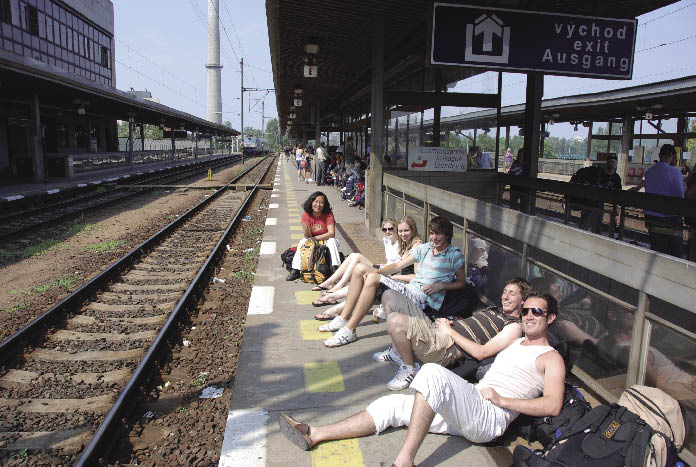|
As Ma became fascinated with traveling, she sold her apartment, car and even borrowed US $100,000 from the bank. She says she wouldn't know how to get back to her original life even if she wanted to.
"Travel is something of an adventure. But dangerous experiences often seem more precious," claims Ma. She always tells her friends, "You have too many things to worry about and your tedious lives need changing." She clearly enjoys her sense of superiority while making such claims. Ma's unusual travel methods have drawn wide attention on the famous Tianya forum () in China. After reading her adventures in Africa and the North and South Poles, many netizens left comments like, "Elder sister, I really adore and admire you."
An Unforgettable Memory
"Among the 125 countries I had traveled, Yemen in the Middle East is my favorite," says Ma. She was received there as an honored guest.
Before going to Yemen, a friend traveling with Ma told her, "Not long ago, there was a massacre in south Yemen that shocked the world. So it is very possible for backpackers to be kidnapped if they go there alone."
Despite the warning, in May 2007, Ma took a bus with only four passengers from Oman to Yemen. Under temperatures of 40 degrees centigrade, the bus traveled for six hours through the desert to reach the Yemen border. Getting off the bus Ma entered a simple and crude cottage. She said to the staff: "I am from China. Could you please grant me a visa because I want to visit your country?" The officer in the cottage handled all the procedures for her in a very polite way. Moreover, he took out his wallet and gave Ma 2,000 rial (about US $12), with the comment, "This is my own money. I would like to welcome you on behalf of the Yemen people."
Later Ma got on another bus. She found a gun-toting guard sitting beside her for protection. Every time they arrived at a station there would be another policeman to ride with her to the next point. In this way, after nine hours, Ma arrived at a small town named Sayoon. Upon hearing that she was from China, residents warmly invited Ma for dinner and provided her with accommodation. Ma was the only tourist in the town. "My impression is that everything is in great disorder there. There were many deserted, half built construction sites."
 |
| At a railway station in the Czech Republic. |
Near Ma's hotel in Yemen's capital of Sana'a, there were rows of houses made from simple iron sheets. A narrow street divided the houses into two districts. Along the road there were small groceries, family hotels and barber shops. The atmosphere gave Ma the feeling that everything in the city was cheap and temporary. Opposite Ma's hotel, for example, a large plastic tent functioned as a temporary church. Most mornings the voices of people praying and singing were spread through a loudspeaker.
In the border district of Sana'a ancient city there was a cemetery, where Chinese workers were buried who had laid down their lives building the road connecting Sana'a and the Red Sea. During the 1970s and 1980s, many Chinese architects and road builders had shed their last drop of blood on this piece of land. They, together with Chinese medical workers who assisted in setting up medical stations, came to help the Yemen people improve living conditions. In the 1970s, the Chinese government developed internationalism by sending different kinds of project teams to Africa and other areas to help construct railways, hospitals and other infrastructure.
|
